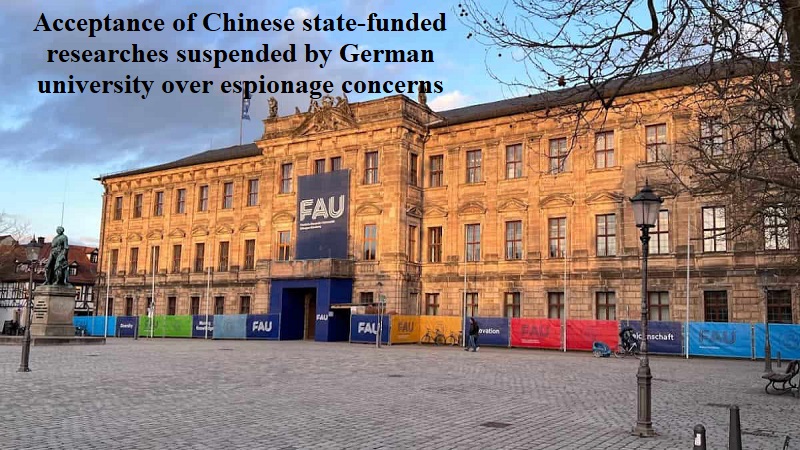
The Friedrich Alexander University of Erlangen-Nuremberg (FAU), situated in Bavaria state, Germany, has taken the step of suspending researchers who hold scholarships from the China Scholarship Council (CSC), an entity under the Chinese government. This action, effective from June 1, has been implemented due to concerns surrounding the potential for industrial espionage. The university has pointed to conflicts between the terms of the CSC contract and Germany’s Basic Law, asserting that these agreements impose restrictions on academic freedom and the freedom of expression.
Administered by China’s Ministry of Education, the CSC provides scholarships to students who pledge allegiance to the Chinese state, maintain connections with the Chinese embassy, and commit to returning to China upon completion of their studies. The FAU’s internal communication disclosed that these commitments are at odds with the principles of academic freedom in Germany, raising apprehensions about potential espionage risks.
The university conveyed, “The political landscape has changed significantly in recent times and topics such as protection against scientific and industrial espionage, data security, and safeguarding intellectual property also post a challenge for our FAU.”
The FAU underlined the evolving political environment and the growing concerns about espionage, data security, and the protection of intellectual property.
The FAU also brought attention to its past association with Chinese telecommunications giant Huawei as a source of international unease. Consequently, the university has pledged not to engage in further research or partnership arrangements with Huawei in the future.
Though the FAU’s decision is currently a solitary instance, it has ignited conversations about potential future limitations on scholars funded by China in Germany. Other German universities are cautious about following suit due to financial considerations. However, the shifting political dynamics are making institutions more vigilant about potential risks associated with espionage.
This move by FAU has prompted discussions in other European universities, including those in Sweden and Denmark, to reassess their collaborations with scholars funded by the CSC.
Germany’s stance towards China is evolving, exemplified by the recently introduced China Strategy. This strategy prioritizes the mitigation of risks in the relationship with China and entails measures to counter the transfer of technological knowledge, expertise, and patents to China.
Germany’s Federal Office for the Protection of the Constitution has identified China as a substantial threat concerning economic and scientific espionage.
Bettina Stark-Watzinger, the German education minister, endorsed FAU’s decision and reportedly expressed, “Research institutions and universities in Germany have a responsibility to safeguard themselves against espionage activities conducted by students receiving scholarships from the Chinese government.”

Post Your Comments